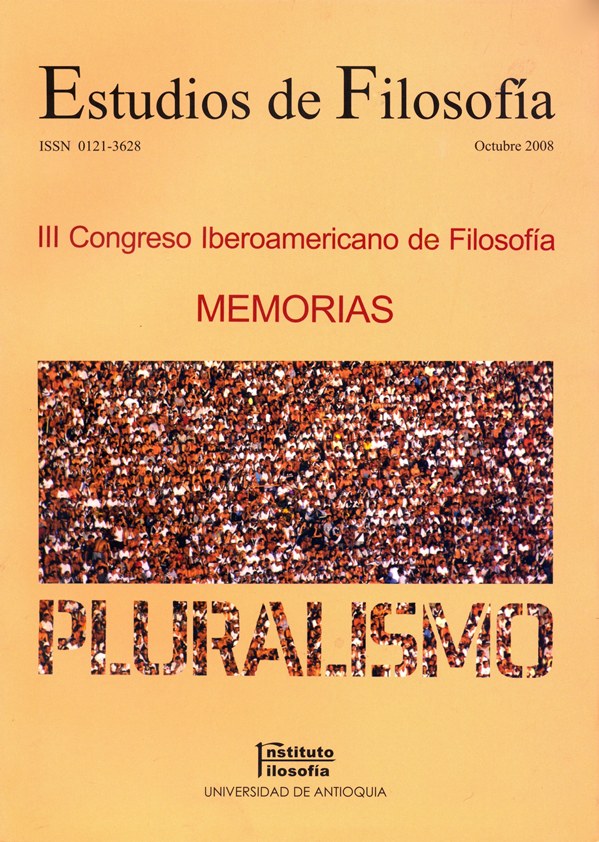Human rights and their philosophical enemies
DOI:
https://doi.org/10.17533/udea.ef.12951Keywords:
human rights, iusnaturalism, philosophy of lawAbstract
After a century and a half of eclipse (1795-1945), human rights reappeared after the end of World War II. Not only in the Constitution of the IV French Republic and in the Preamble to the Constitution of the II German Republic; they were the subject of nothing less than a solemn international declaration in 1948 by the United Nations Assembly. Two philosophical questions are of interest in this intervention: 1. What the philosophical idea of law, if there is any homogeneous one that unites them, has the supporters of human rights and citizens. And conversely, what idea of law, if there is one that also integrates them, do the philosophical enemies of human rights have. 2. If, it seems, the philosophical defenders of human rights are always unequivocal supporters of ethical universalism, the interesting philosophical question naturally arises as to the historically particular origin of an ideology or an intellectual program that claims to be universal, that is that is to say, that it intends to normatively transcend the concrete historical contexts that engendered it. [Fragment]
Downloads
Downloads
Published
How to Cite
Issue
Section
Categories
License
Copyright (c) 2008 Estudios de Filosofía

This work is licensed under a Creative Commons Attribution-NonCommercial-ShareAlike 4.0 International License.
Authors who publish with this journal agree to the following terms:
1. The Author retains copyright in the Work, where the term "Work" shall include all digital objects that may result in subsequent electronic publication or distribution.
2. Upon acceptance of the Work, the author shall grant to the Publisher the right of first publication of the Work.
3. The Author shall grant to the Publisher a nonexclusive perpetual right and license to publish, archive, and make accessible the Work in whole or in part in all forms of media now or hereafter known under a Creative Commons Attribution-NoCommercia-ShareAlike (CC BY-NC-SA 4.0), or its equivalent, which, for the avoidance of doubt, allows others to copy, distribute, and transmit the Work under the following conditions: (a) Attribution: Other users must attribute the Work in the manner specified by the author as indicated on the journal Web site;(b) Noncommercial: Other users (including Publisher) may not use this Work for commercial purposes;
4. The Author is able to enter into separate, additional contractual arrangements for the nonexclusive distribution of the journal's published version of the Work (e.g., post it to an institutional repository or publish it in a book), as long as there is provided in the document an acknowledgement of its initial publication in this journal;
5. Authors are permitted, and Estudios de Filosofía promotes, to post online the preprint manuscript of the Work in institutional repositories or on their Websites prior to and during the submission process, as it can lead to productive exchanges, as well as earlier and greater citation of published work (see The Effect of Open Access). Any such posting made before acceptance and publication of the Work is expected be updated upon publication to include a reference to the Estudios de Filosofía's assigned URL to the Article and its final published version in Estudios de Filosofía.















